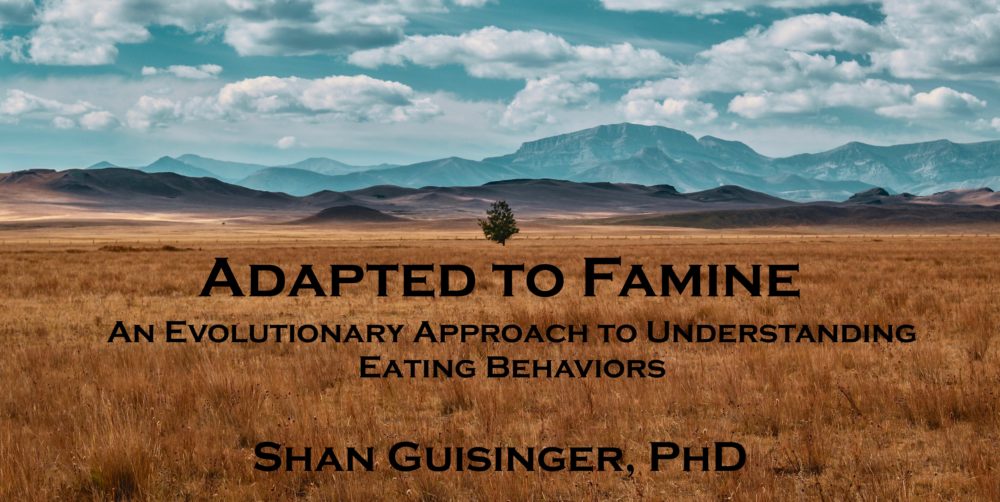A disease to fight famine?
by Stephen Strauss
The Globe & Mail, Page F8 | January 17, 2004
Feeling hungry, but aren’t tempted to eat? Want instead to start running and keep chugging as long as you can?
In humanity’s hungry past, these twinned responses might have been a vital survival instinct for someone needing the strength to flee from famine. But today the same body response might be anorexia nervosa.
This is the radical thesis that evolutionary psychologist Shan Guisinger put forward in a paper recently published in the journal Psychological Review. She describes the failures of psychological and social theories to explain the reason anorexia strikes so many more women than men – a ratio of 10 to 1 is often cited – and the condition’s strange features.
“Normal” starvation leads to lethargy, depression and increased hunger. Anorexia leads to food refusal, optimism and hyperactivity. Dr. Guisinger argues that the most likely explanation for this is that the genetics of a certain subset of the female population allowed them to lead their families through hungry times.
“When resources were depleted and the tribe despaired, the anorectic’s energy, optimism and grandiosity would mobilize the other members to heroic marches. . . . When a starving tribe reached a new hunting/gathering ground, social pressure exerted by family and friends would in turn have helped the anorectic member(s) to begin eating again,” she says.
Over time, evolution would have favoured women carrying genes for famine-fighting anorexia.
To support her thesis, Dr. Guisinger presents a host of human, animal, biochemical and historical evidence, but she concludes with a caution: “Like obesity, AN was useful then and is deadly now.”
While clearly not the final word on a complicated subject, her analysis allows one to understand the roots of a condition so widespread that common sense says it must have served some larger good in the human evolutionary past.
Find a copy of the article here.
